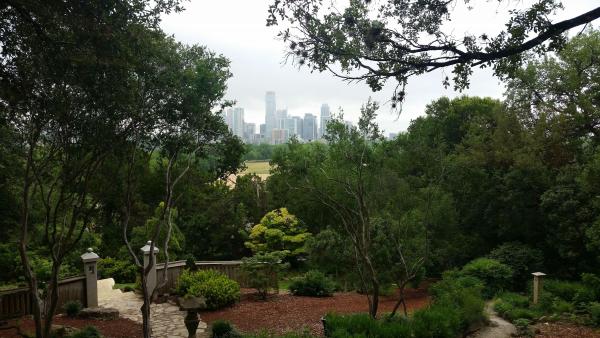Dripping Gardening January 23

Nature. If we are lucky it’s found everywhere we go, in some shape or form but do we ever stop, wonder and say thanks? Or just show the full appreciation that nature deserves?
Plants, flowers and trees are the very items we depend on for our very existence, understanding the process of how they uptake carbon dioxide and release it as oxygen. For example, a single tree can produce about 250 pounds of oxygen a year. That’s enough for a family of four! Did you know that?
Our diets depend heavily on plant-based recipes, corn, wheat, rice, vegetables and fruits. We have been able to modify our modern fruits and vegetables to suit our tastes, wants, desires, flavors and colors. Did you know the original color of a carrot was a brownish purple? Or have you ever googled what the first corn actually looked like? Not like what you might think.
But plants don’t just produce the food we depend on or the air we breathe, they offer so much more than just this. For me, the natural world has always been a sanctuary and escape route from the real world. From a very young age, I developed an interest and passion, I became a plant fanatic. I spent days reading through horticulture literature and then many more days experimenting, learning plant propagation techniques, colors and more.
Try this next time you are eating a piece of fruit, examine the seeds and give thought to how they can transpire into a fully functioning plant. If you could even go one step further and purchase some seed and soil, then sow the seed and see it germinate. Once they have germinated take the pride and sense of achievement on accomplishing this. By the way, I can almost guarantee you will be hooked after this little experiment.
Although horticulture has many branches that transpire into many benefits, I have recently embarked on a study into horticulture therapy. This is an emerging field of clinical practice based on proven benefits to the physical, mental and emotional wellbeing that accrues from gardening as a healing or therapeutic process. This has really opened my eyes to the true power of nature for physical and mental health. There is definitely way too much information to delve into this area in a single article, but I would like to give you a flavor of some of these powers.
The five senses, touch, smell, taste, sight and hearing can be all associated with plants in one form or another.
• Touch is through the various forms of bark, leaf shapes and textures. We tend to be unaware when we walk past a plant, but subconsciously we are affected by what we see. Perhaps it’s the glossy leaf or the rough bark that draws us in, but research shows that just walking amongst what nature offers can lighten our moods and calm our minds.
• Smell is through fragrant flowers and leaves, lavender, lilac, roses. Every species of plant has an individual smell, some we enjoy more than others but just taking time to smell fresh flowers has been shown to benefit humans. The aroma of flowers is shown to offer anti-depressant benefits and stress relief benefits. Even the sweet smell of freshly cut grass has be shown to offer positive effects for us – reducing stress and even preventing mental decline as we age.
• Taste is the obvious one. We taste the fruit and vegetables we eat. They contain nutrition in the form of vitamins, minerals, antioxidants, phytonutrients and so forth. The array of different tastes achieved from a wide of plants is overwhelming – bitter, acidic, sweet, and so on; almost all offer an astonishing array of health benefits too.
• Sight is one of the defining elements of plants due to the fact that they can help alter our moods. Looking at and being surrounded by nature can be hugely calming and restorative for the mind. One oft repeated study has shown that surgery patients recover faster, have fewer complications, require less pain medication, and return home sooner, when they are able to look out a window onto a scene of nature’s beauty rather than a wall, city scape or such as they heal.
• Hearing is through the wind or mechanical movement of flower heads, seed pods or leaves. We can find solitude and comfort in these sounds; they are calming and tranquil. One of the most recommended ways for busy people to de-stress is to take time out to listen to music. I would argue that there is no music in the world as sweet and pleasing as that of nature itself.
“I work like a gardener,” the great painter Joan Miró wrote in his meditation on the proper pace for creative work. Indeed, to garden and even merely to be in a garden, is nothing less than a triumph of resistance against the merciless race of modern life, so compulsively focused on productivity at the cost of creativity, of lucidity, of sanity; a reminder that we are creatures enmeshed with the great web of being, in which, as the naturalist John Muir observed long ago, “when we try to pick out anything by itself, we find it hitched to everything else in the universe”; a return to what is noblest, which means most natural, in us.
There is something deeply humanizing in listening to the rustle of a newly leaved tree, in watching a bumblebee romance a blossom, in kneeling onto the carpet of soil to make a hole for a tomato transplant, gently moving a startled earthworm or two out of the way. Walt Whitman knew this when he weighed what makes life worth living as he convalesced from a paralytic stroke: “After you have exhausted what there is in business, politics, conviviality, love, and so on — have found that none of these finally satisfy, or permanently wear — what remains? Nature remains; to bring out from their torpid recesses, the affinities of a man or woman with the open air, the trees, fields, the changes of seasons — the sun by day and the stars of heaven by night.”
Simply put, the human spirit longs to be a part of nature and not apart from nature. I would highly encourage you to get out into your garden or visit the many wonderful gardens that can be found nearby, such as the Lady Bird Johnson Wildflower Center or Austin’s Zilker Park, or the San Antonio Botanical Gardens. All amazing day trip locations. I promise that you won’t feel worse for the visit!


